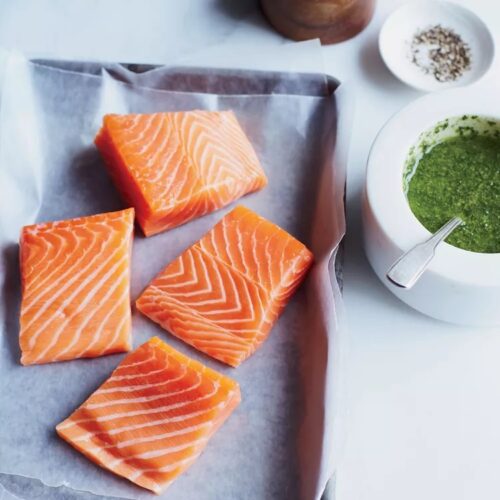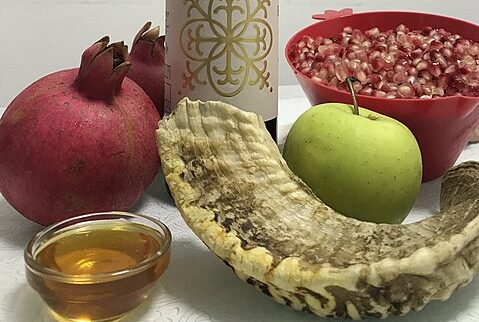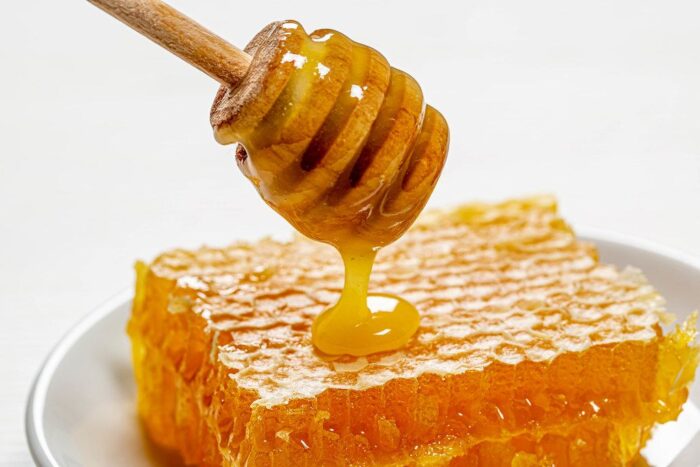A brief Halachic overview
The Torah tells us, “Venishmartem me’od lenafshosechem” – be exceedingly careful with your lives.[1] It is customary not to eat certain foods that Chazal identified as being dangerous, although they may otherwise be kosher. In this category are peeled garlic, onion, and egg that were left overnight.
The source for this prohibition is found in the Gemara:[2]
“R’ Shimon ben Yochai said: There are five things that whoever does them is liable for his own life, and his blood is on his head [i.e., if he dies as a result of doing these things, he is considered responsible for his own death.[3] The first thing is]: One who eats peeled garlic, peeled onion, or peeled egg […] that has been left overnight.”
The Gemara goes on to explain:
“Even if they were placed in a basket and tied and sealed, [they should not be eaten] because a ruach ra’ah [bad spirit] rests among them. However, this was said only if no root or peel was left remaining on them. But if one did leave their root or peel on them, we have no [objection] to it.”
There is considerable discussion among the commentaries and Halachic authorities regarding the precise nature of this “ruach ra’ah,” and whether it poses a spiritual or physical danger today.[4] The prevailing custom, based on the conclusion of many authorities, is to be stringent and not to eat peeled garlic, onion, or egg that was left overnight.[5]
There are a number of exceptions and ways to avoid this prohibition:
- Leaving some of the peel or root intact: As mentioned in the Gemara , the ruach ra’ah does not contaminate the garlic, onion, or egg if their peel or roots are attached. For this reason, one who uses part of an onion and wishes to use the remainder at a later date should leave some of the peel on or avoid cutting off the bottom.[6]
- Mixing with other ingredients: If the peeled garlic, onion, or egg were mixed with other ingredients or foods before being left overnight, they may be eaten.[7] Accordingly, eggs or onions that were fried with oil are not subject to the prohibition.[8] One who wishes to keep de-shelled eggs overnight may do so by adding salt or other spices to them.[9] Similarly, one who prepares onions or garlic for a salad may mix them with other cut vegetables before leaving them overnight.[10]
- Cooking: If peeled garlic or onion were cooked (or roasted) before being left overnight, it is customary to be lenient in accordance with authorities who hold that there is no danger.[11] Regarding eggs, however, the matter is less clear: Some poskim say that the danger applies only to cooked eggs[12] while others say that it applies specifically to raw eggs.[13] Yet others appear to make no distinction between the two. In practice, it is customary to be stringent and avoid both raw and cooked eggs that were left overnight without their shell.[14]
- Not left for the entire night: According to some authorities, the food is not forbidden unless it was left for the entire night – that is, from tzeis hakochavim (nightfall) until alos hashachar (dawn).[15] Others contend that if the food was peeled during the night and left for the remainder of the night, it is forbidden.[16] A Rav should be consulted if this occurs.
- Intentionally prepared for long-term use: The ~ occasionally receives queries from consumers as to how commercially prepared garlic cloves or de-shelled eggs can be kosher certified. Rav Moshe Feinstein[17] ruled that the prohibition only applies to the situation described in the Gemara, where the items were intended for short-term use and inadvertently left overnight. We do not extend the prohibition to items that were prepared with the intention of being held for an extended period of time, as is the case with commercially prepared products. [18] The policy of the OK, and that of other kosher agencies, is to certify such products based on this ruling.[19]
We are taught that “chamirah sakanta me’issura – danger is more stringent than prohibition.”[20] The Rema[21] explains this to mean that when dealing with matters involving a safek sakana (possible danger) we should be more careful than we are with a safek issur (possible prohibition). May Hashem help us steer clear of all forms of danger, physical and spiritual, and protect us at all times.
Please note that this article is merely a brief overview and does not cover all opinions and scenarios. If you have mistakenly left peeled egg, onion, or garlic overnight, a Rav should be consulted to determine if they need to be discarded.
[1] דברים ד:ט”ו
[2] נדה י”ז.
[3] רש”י שם
[4] ראה הגהות מרדכי על מס’ שבת פרק המוציא בשם מהר”ם דדילמא סקנה זו לא שכיח בינינו. וראה אגרות משה יו”ד חלק ג’ סימן כ. שבט הלוי חלק ג סימן קס”ט
[5] פרי חדש יו”ד קט”ז ס”ק ט, של”ה שער האותיות – קדושה אות ק”נ, שו”ע הרב הל’ שמירת גוף ונפש ז, בן איש חי פרשת פנחס ב:י”ד, כף החיים סי’ קט”ז ס”ק צ”ב, ערוך השולחן ס’ כ”ב, ועוד
[6] ראה שו”ע הרב שם, שאפילו אם שייר בהם “מעט קליפתם” מותרים
[7] סמ”ק סי’ קע”א לגבי שום המעורב בלחם. שו”ת בית שלמה יו”ד ח”א סי’ קפ”ט. בן איש חי [שם]. שו”ת מנחת יצחק ח”ו סי’ ע”ה. ועוד
[8] שו”ת ישכיל עבדי ח”ז או”ח סי’ מ”ד שאלה ד. ארחות רבינו ח”א ע’ שע”ו. שו”ת שבט הלוי [שם]
[9] The OK’s poskim have ruled that plain water does not qualify as another ingredient for this purpose as it does not have a sufficiently discernible effect on the food. Accordingly, peeled eggs, onions, or garlic that are soaking in water (or blended with water) should not be left overnight unless another ingredient has been added.
[10] ראה ספר פסקים ותשובות יו”ד סי’ קט”ז והערה 196 שם
[11] ראה כף החיים או”ח סי’ תק”ד סק”א שאינו מזיק כשהם מבושלים
[12] שו”ת יד מאיר סי’ י”ט. שו”ת דגל אפרים סי’ כ”ח
[13] שו”ת בית שלמה יו”ד ח”א סי’ קפ”ט
[14] ראה ספר פסקים ותשובות [שם] שמסתימת הרבה פוסקים נראה שהסכנה שייכת בין בביצה חי’ ובין מבושלת וכן המנהג
[15]שו”ת דברי יציב ב’ אות י”ג. אמרי יעקב על שועה”ר הל’ שמירת גוף ונפש ס”ק ל”ג. וכן מובא בספר פסקים ותשובות [שם] בשם הגר”ח קניבסקי
[16] שו”ת שבט הקהתי ח”ב סי’ רמ”ז
[17] אגרות משה [שם]. וראה גם שו”ת שבט הלוי ח”ו סי’ קי”א אות ה
[18] The OK’s policy is to be stringent and not rely on this ruling in restaurants and food service establishments, where the items are peeled for short-term use. (If the items are supplied by an approved company that prepared them for long-term use, they may be used.)
[19] We have found that garlic processing companies often rinse or soak their peeled garlic in an acid solution to preserve quality. The use of this acid may be an additional mitigating factor in allowing the consumption of commercially-prepared peeled garlic cloves. Regarding garlic powder, onion powder, and egg powder, there are additional mitigating factors allowing their use (beyond the scope of this article).
[20] חולין י.
[21] יו”ד סי’ קט”ז ה


 EN
EN  ZH
ZH  KR
KR  BR
BR  ES
ES  IN
IN  IL
IL 




